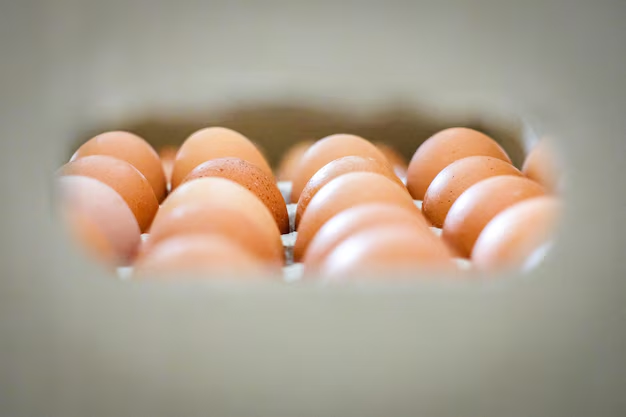How Fresh Are Your Eggs? Maximizing the Longevity of Eggs in Your Refrigerator
When it comes to food storage, one of the most common questions popping up in kitchens around the globe is: "How long can eggs really last in the refrigerator?" Eggs are a staple in many diets, thanks to their versatility and nutritional value. However, storing them correctly is crucial to maintaining their freshness and safety. This article will delve into everything you need to know about storing eggs, extending their shelf life, and maximizing their utility.
🥚 Understanding the Basics of Egg Storage
Why Refrigerate Eggs?
Keeping eggs cold can extend their freshness significantly. Eggs in the United States, for instance, are required to be refrigerated due to the egg-washing process they undergo, which removes protective barriers that could harbor contamination. While in some countries, unwashed eggs can be left at room temperature, refrigeration remains the more reliable choice for extended shelf life.
The Ideal Refrigerator Conditions
Eggs do best when stored at a consistent temperature. Keeping the refrigerator at or below 40°F (about 4°C) is recommended. This setting slows down the growth of bacteria and retains the egg's quality for a longer period. Additionally, storing eggs in their original carton can protect them from absorbing odors and drying out.
🕰️ How Long Do Eggs Actually Last?
Fresh Eggs vs. Expired Eggs
In general, eggs can last up to three to five weeks in the refrigerator from the time you purchase them. The exact length depends on factors like storage conditions and whether the eggs are store-bought or from backyard chickens.
Key Factors That Influence Egg Longevity:
- Refrigeration consistency: Regularly fluctuating temperatures can prematurely spoil eggs.
- Packaging: An egg carton helps maintain humidity and prevents odor absorption.
- Egg freshness: Newly laid eggs from local sources may last longer if handled properly.
📝 Quick Tips for Determining Egg Freshness
- The Float Test: Place an egg in a bowl of water. If it sinks, it is fresh. If it floats, it's time to discard it.
- Sniff the Egg: A fresh egg shouldn't have any distinctive odors. If it smells off, better to toss it.
- Visual Inspection: Check for cracks, slimy residue, or powdery coating.
🌡️ The Dos and Don'ts of Egg Storage
Dos:
- Keep them in their carton: This slows down degradation and prevents moisture loss.
- Store them in the main section of the fridge: The fridge door can have the most temperature fluctuations.
- Mark the date of purchase: This helps track how long they've been stored.
Don'ts:
- Avoid washing eggs before storage: Washing can remove the natural protective coating that keeps bacteria out.
- Don't break eggs prematurely: It’s best to keep them in the shell until you're ready to use them.
🍳 Using Eggs Wisely
Cooking and Long-term Use
Eggs are incredibly versatile. From breakfast scrambles to baking, they form the base of numerous recipes.
Ideas for Using Eggs:
- Boiling: Boiled eggs can be stored for up to a week in the fridge. They're perfect for a quick snack or salad addition.
- Baking: Eggs serve as great binding and leavening agents in cakes and pastries.
- Freezing: Although not a common practice, eggs can be frozen. Crack and whisk them together first, then store in a freezer-safe container for up to a year.
Alternatives in Case of Allergies or Intolerance
If eggs are off the menu due to allergies, there are numerous substitutes available:
- Applesauce or mashed bananas can be great substitutes in baking.
- Silken tofu can replace eggs in savory dishes.
- Commercial egg replacers are also popular in baking.
🧭 Troubleshooting Common Egg Storage Challenges
Addressing Common Concerns
Why are my eggs sticking to the carton?
Humidity from the fridge can cause this to happen. Gently remove them, and consider using an egg tray.Is it safe to consume eggs past their expiration date?
As with many food products, the "best-by" date is an estimate. The above-mentioned freshness tests (float, sniff) are more reliable indicators.What to do with leftover egg whites or yolks?
Leftover yolks can spoil quickly so use them within two days. Egg whites can last up to a week when stored in an airtight container in the refrigerator.
🔍 Summary Table: Key Tips for Storing and Using Eggs
| 🥚 Tip | 📌 Details |
|---|---|
| Store at or below 40°F (4°C) | Ensures longevity and keeps bacteria at bay. |
| Keep in original carton | Protects from odors and keeps humidity levels consistent. |
| Avoid fridge door storage | Prevents exposure to fluctuating temperatures. |
| Use the float test for freshness | Eggs that sink in water are fresh, floating eggs should be discarded. |
| Consume cooked eggs promptly | Store hard-boiled eggs for up to a week in the fridge. |
| Plan ahead for allergic alternatives | Applesauce, silken tofu, or commercial replacements when eggs aren’t an option. |
🥙 Concluding Insights
Egg storage may seem straightforward, but nuanced practices can make a significant difference in maintaining freshness and quality. With careful attention to detail, you can ensure your eggs stay fresh longer, reduce waste, and make the most of this versatile ingredient. Whether you're boiling, baking, or frying, knowing how to store and test for freshness will keep your kitchen and your meals running smoothly. Always remember: when in doubt, throw it out—your health is worth more than a questionable omelet.

